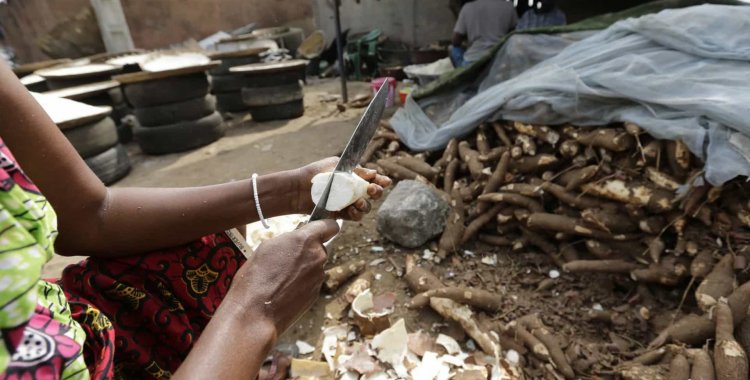The holder of the portfolio of Industry and Trade, who was speaking during the opening of the international webinar on "Opportunities and Challenges in the Cassava Value Chain in Angola", explained that for this choice studies were conducted that had very promising results.
The studies, done by the Institute of Industrial Development of Angola (IDIA) and the National Directorate of Industry, showed that the geographical position of Cacuso is very favorable to the production of cassava. The condition of pre-existing infrastructures in that area is also a point in favor of the project's success, Angop reported.
The governor pointed out that the country has rural industrial centers, some of which are located in centers of greater production of cassava, and in this sense, to "advance work and take advantage of what is already done" will be used the pole of Cacuso, in Malanje, as a pilot project.
"It is from there that we will start, in fact, the process of industrialization of cassava in the sense that, creating the pilot project in Cacuso, we go from there to the rest of the country, because, fortunately, cassava is produced throughout the country," he stressed.
The minister pointed out that this agricultural product has a set of derivatives, but the country still does not have the industrial installed capacity to produce them, highlighting that the bet is for the starch.
"It is a by-product that is also in corn, but mainly in cassava, and that in this particular case, there is even who can keep this production. Because we have recently inaugurated textile industries and the textiles need a lot of starch to make the starch in the fabrics. We already have here who buys, what is missing is who produces the starch", he pointed out.
Victor Fernandes stressed the need for the involvement of private partners, taking into account that the objective is to guarantee that they are the de facto agents to participate in the productive process.
Cited by Angop, Victor Fernandes said that the potential of the country to grow cassava is high: the annual production exceeds 10 million tons. Numbers that place the country in third place in the continent, being only behind Nigeria and Cameroon.
"Today in a more elaborate context, we have to put our hands to work and establish a national plan for the utilization of the cassava value chain," he stressed.
He emphasized that Angola is in the top 15 of the world's largest producers, which allows it to increase, in the coming years, its level of cassava production.
He made known that the consumption of this food in the country is summarized to the flour of bombó and musseque, and therefore a program was designed to promote and encourage the population to purchase and consume various products and derivatives of cassava.
In the webinar, which was attended by several international entities, were also presented some solutions on how Angola can take advantage of cassava and its derivatives in various areas (food industry, syrup production, among others). Brazil and Argentina also shared their experiences on the use of this food.
The country has a cultivated area of 1.1 million hectares of cassava, and last season 928,512 hectares were harvested, representing an annual production of 92 percent, with an annual growth rate of 2.4 percent and an average yield of 11.9 tons, with the northern region leading the production with 66.2 percent, followed by the center (29.1 percent) and the south (4.7 percent).
Leading production are the provinces of Uige, with about 20 percent of total production, Malanje (14.6 percent), Kwanza Sul (9.1 percent), Moxico (8.7 percent) and Lunda Sul (6.8 percent).







